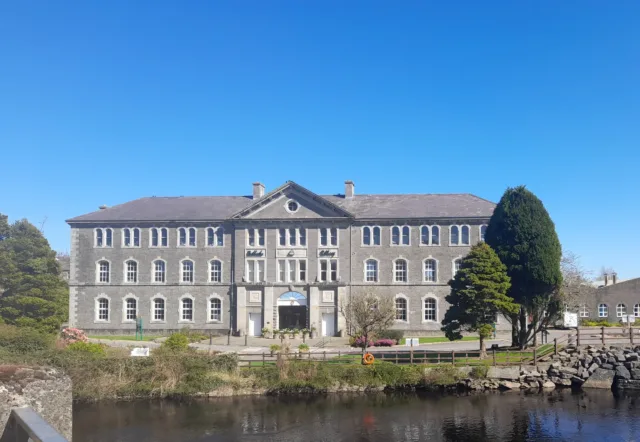View all Courses
ATU welcomes the launch of the ALTITUDE Charter
Focused on widening inclusion in tertiary education, ALTITUDE marks the start of a national conversation about how the sector can more strategically embed a universal design (UD) approach.

As a National Lead in the Project, Atlantic Technological University (ATU) welcomes the launch of ALTITUDE – the National Charter for Universal Design in Tertiary Education today, Tuesday, 19 March 2024, at the AHEAD Panorama Conference in Dublin.
Focused on widening inclusion in tertiary education, ALTITUDE marks the start of a national conversation about how the sector can more strategically embed a universal design (UD) approach. A working group of senior leader representatives from across the further education and training (FET) and higher education (HE) sectors is currently being devised to guide the development of a formal adoption process for institutions, with adoption expected to become available to institutions by late 2024/early 2025. Before this formal process becomes available, institutions are encouraged to begin strategic dialogue across functions to consider what an effective working group structure to drive implementation would look like.
President of ATU, Dr Orla Flynn, noted this landmark achievement:
“Universal design is a significant component of our approach to meeting the diverse needs our learner population – we need everyone to play their part and a UD approach can help us to get there. I commend this important cross sectoral effort to develop the ALTITUDE Charter and the related toolkit and technical report. I look forward to ensuring through our Strategic Plan that a universal design approach is embedded right across ATU.”
The launch of the ALTITUDE Charter is accompanied by the ALTITUDE Technical Report. This report outlines the context for the development of the Charter, the evidence base that underpins it, the alignment of the Charter with legislation and policy, and contains recommendations on its implementation. A more practical Toolkit to support the implementation of the Charter is in the final stages of development.
Download the Charter and Technical Report.
The Charter recommends key strategic enablers, which institutions should put in place over time to support the sustainable implementation of UD, and proposes collaborative action to work towards goals under four key pillars:
1. Learning, Teaching & Assessment
2. Supports, Services & Social Engagement
3. Physical Environment
4. Digital Environment
Institutions who adopt it will over time benefit from:
– A more unified language of and commitment to a universal design approach in their institution
– A greater culture of shared responsibility for UD, access, and inclusion, operationalising the ‘Inclusion is Everyone’s Business’ mindset
– A more effective and learner centred approach to compliance with national legislation and policy
– The iterative development of programmes, services, and environments that enable equitable opportunities for all learners to thrive and be successful
Funded by the HEA under PATH 4, the ALTITUDE Project is an extensive cross-sectoral collaboration involving six national agencies, 15 higher education (HE) institutions, and six Education and Training Board (ETB) representatives, nominated by FET directors to represent the Further Education and Training sector.





